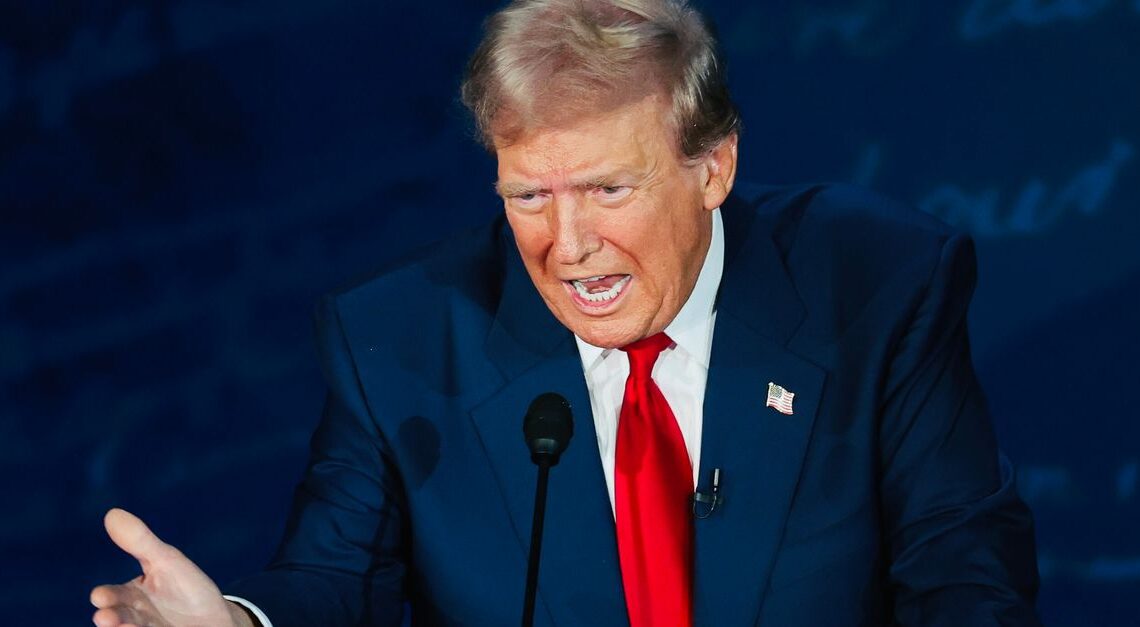After former President Donald Trump delivered a huffy, visibly emotional debate performance Tuesday night, many viewers hopped online to make the same joke: “Perhaps men are too emotional to be president.”
After decades of hearing that female candidates were too emotionally unstable ― hysterical even, especially around that time of month ― for the top job, the joke was too good to pass up, given how the night panned out: It was the woman on stage, Vice President Kamala Harris, who came across as cool, calm and collected (albeit characteristically prone to laughing).
Expertly baited by Harris ― one reference to Trump’s small crowd sizes was all it took to set him off ― a petulant Trump glared into the camera all night, his mouth bunched and his eyes squinted in a scowl.
Those same eyes never seemed to make direct contact with his Democratic rival for the presidency, who, by comparison, seized the split-screen format, smirking and shaking her head as Trump rambled about immigrants eating cats and his admiration of Hungary’s authoritarian leader, Viktor Orbán.
Clearly thrown off his game, Trump refused to call Harris by her first name, one he often mispronounces, preferring “she.”
Eventually he went full schoolyard gossip mode, claiming that even President Joe Biden didn’t like Harris. “I’ll give you a little secret. He hates her. He can’t stand her.”
New York Times columnist Frank Bruni said Trump looked “livid” on stage. Britain’s The Independent went for “unhinged.” Whatever word you go with, the gist is that Trump was overly emotional Tuesday night on the Philadelphia debate stage ― a label that’s been lobbed for decades at women who run for office. (Not to mention, used as arguments against women voting and serving on juries.)
“The performance by the two candidates last night should, but probably won’t, put to rest forever the myth that all men are rational and all women are emotional,” said Barbara A. Perry, a presidential studies professor at the University of Virginia’s Miller Center of Public Affairs.
As recent as 2019, a Georgetown University study found that 13% of respondents still had serious doubts about women’s emotional suitability for political office. And it hurts their chances of winning: A number of studies have shown that labeling women as “emotional” undermines their credibility.
Despite his emotional outbursts ― he was nearly as tantrum-y in his debates with Democratic nominee…
Click Here to Read the Full Original Article at Women…

